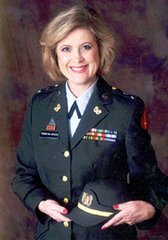

WRITING STUFF: GENRE DOESN'T MATTER; STORY MATTERS
TELLING THE STORY
It's good to know grammar. It's good to have a wonderful vocabulary, use it properly, and know when to be concise and when to throw it all up in the air at one time. It's good to listen to your teachers: Strunk & White, Roget, Oxford English.
But nothing beats telling the story, except telling it well.
Miss Snark - bless her pointy stilettos - used to say "Good writing trumps all." She was right about this just as she was gloriously right about a lot of other things. But she made it clear that the good writing needed something to tell.
This post is really aimed at fiction, although there may be a good morsel or two for the non-fic writer as well. But this story is about stories.
I have recently read two very good stories: A Year of Pleasures by Elizabeth Berg and The Thirteenth Tale by Diane Setterfield. The first one, a woman's story of widowhood and getting through the days immediately after her husband's death, is slow-going at first, but pulls you into her changing life a piece at a time until her story is told. The second, a story-within-a-story of a biographer and her unusual subject, sucks you into the dual plot immediately and just doesn't let go.
Both stories had the requisite beginning-middle-end, but there's more to good storytelling than the mechanics. Don't get me wrong - the mechanics are vital. I don't care how great your story is, if you can't spell or don't have at least a rudimentary grasp of grammar, I'm not going to read it. If you distract me with inaccuracies, or take me out of the story with intrusions, I'm not going to read it. If your writing is sloppy, your story isn't going to be neat and I won't read it.
But the story is the key and central part of a work of fiction.
Lots of people think they can write a book when they don't know anything about telling a story. These are the same folks who will look at your book and remark vaguely, "Yeah, I could write a book too, if I had the time…" implying both that your achievement is pretty ordinary and you have way too much free time on your hands.
No. They couldn't. What they are really saying is, "I could write a book, if I had a story worth telling and knew how to tell it in an interesting way. But I don't."
When your novel starts edging up to that hundred gazillion word count, check to see where your story is - did it get buried in the details? Is it squished flat under your heavyweight characters? Could you take your main story - your primary plot line - and tell it to me in one page? You know, like you will have to eventually do in a query letter?
Could it make a wonderful and interesting short story?
Or is it just a chronicle of your character's doings, a slice of life with drippy edges…
Read it over - does it have an end? Stories need a logical, satisfying conclusion. Make sure your book gets put down with a smile or a sigh or a poignant gaze after all the words have been read.
TELLING THE STORY
It's good to know grammar. It's good to have a wonderful vocabulary, use it properly, and know when to be concise and when to throw it all up in the air at one time. It's good to listen to your teachers: Strunk & White, Roget, Oxford English.
But nothing beats telling the story, except telling it well.
Miss Snark - bless her pointy stilettos - used to say "Good writing trumps all." She was right about this just as she was gloriously right about a lot of other things. But she made it clear that the good writing needed something to tell.
This post is really aimed at fiction, although there may be a good morsel or two for the non-fic writer as well. But this story is about stories.
I have recently read two very good stories: A Year of Pleasures by Elizabeth Berg and The Thirteenth Tale by Diane Setterfield. The first one, a woman's story of widowhood and getting through the days immediately after her husband's death, is slow-going at first, but pulls you into her changing life a piece at a time until her story is told. The second, a story-within-a-story of a biographer and her unusual subject, sucks you into the dual plot immediately and just doesn't let go.
Both stories had the requisite beginning-middle-end, but there's more to good storytelling than the mechanics. Don't get me wrong - the mechanics are vital. I don't care how great your story is, if you can't spell or don't have at least a rudimentary grasp of grammar, I'm not going to read it. If you distract me with inaccuracies, or take me out of the story with intrusions, I'm not going to read it. If your writing is sloppy, your story isn't going to be neat and I won't read it.
But the story is the key and central part of a work of fiction.
Lots of people think they can write a book when they don't know anything about telling a story. These are the same folks who will look at your book and remark vaguely, "Yeah, I could write a book too, if I had the time…" implying both that your achievement is pretty ordinary and you have way too much free time on your hands.
No. They couldn't. What they are really saying is, "I could write a book, if I had a story worth telling and knew how to tell it in an interesting way. But I don't."
When your novel starts edging up to that hundred gazillion word count, check to see where your story is - did it get buried in the details? Is it squished flat under your heavyweight characters? Could you take your main story - your primary plot line - and tell it to me in one page? You know, like you will have to eventually do in a query letter?
Could it make a wonderful and interesting short story?
Or is it just a chronicle of your character's doings, a slice of life with drippy edges…
Read it over - does it have an end? Stories need a logical, satisfying conclusion. Make sure your book gets put down with a smile or a sigh or a poignant gaze after all the words have been read.
Leave 'em full, but wanting the next one.
THREE BEAUTIFUL THINGS
My new closet. My Dear Husband built it for me over the past weekend.
Mango sherbet. I wanted watermelon, but mango is what they had. It was terrific.
Susie Eaton, my framer, who has opened her own shop and looked happy to bursting at her own counter with her own work displayed, and dozens of orders lined up.










8 comments:
Great post! So true, and so easy to forget to write the story. I often find I've written that "slice of life with drippy edges" you mention.
"carl michaels" arrives to drip nastiness for no apparent reason. I call that being a troll.
I'd use a stronger word than troll, but I agree.
Excellent post as usual, Kate. And yea for the new closet (and for handy husbands!)
I just deleted it - I don't know who or what this "carl michaels" is, but I think you're right, just s troll...
Writtenwyrdd - thank you - it's so easy to just keep on writing when your characters are driving.
Sonnjea b - that closet is a wonder - thanks!
Just wrote a short story about trolls.
Endings are vital, they say that's what sells the next book.
I have trouble with endings.
Bernita - a short story about trolls - now *that's* making lemonade out of lemons!
I enjoyed your post. Well said. Not everyone can build a house from the ground up, and not everyone can write a novel. I once had a friend (whom I did not consider a writer) describe to me the novel he was working on. He already was several weeks into it, and his story idea was fascinating. After twenty minutes of intense listening, I asked him how many pages he had written. He answered, "Two." Again, not everyone can write a novel.
Ah, Jim - what a waste of a good idea! If it doesn't get written, it's not a novel. Thank you for stopping by, too!
Post a Comment